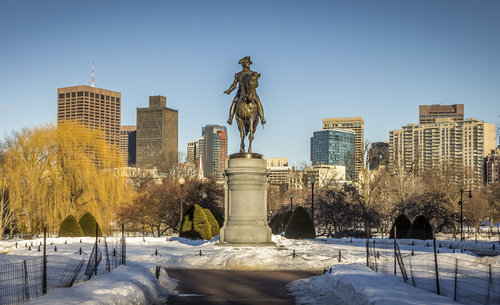Boston’s affordability continues to pose a problem
Boston has the highest rate of economic inequality in the nation, according to a new Brookings Institution study.
Boston households that earned more than 95 percent of other households made $266,224 in income in 2014, whereas households that earned more than 20 percent of households earned just $14,942. Boston’s 95/20 ratio of 17.8 was the highest city in the nation; previously in 2013, the city ranked third with a ratio of 15.0.
Inequality and Affordability – Strange Bedfellows
Thanks to a population boom – in which inward migrations outpaced the amount of new units built by five to one – Boston has struggled with affordability. Because the population has grown faster than the rate of construction, prices and rents have surged, while the vacancy rate dropped to 0.7 percent, according to the Greater Boston Housing Report Card 2015. The situation, the report concluded, has become “fundamentally unmanageable.”
Further complicating the affordability situation is the nature of new construction in Boston – simply, builders are focusing on luxury construction rather than affordable units, due to high development costs. The total development cost per square foot for urban housing projects averaged at $274, or more than $438,000 for a 1,600-square-foot unit. In order for that property to be profitable, the monthly rent would have to be $3,215, well above affordable levels. The median income of households in Boston was $73,935 in 2013, meaning they would have to spend 52 percent of its gross income on housing alone, becoming severely rent burdened.
Combatting Unaffordable Housing Trends in Boston
So where do these trends of inequality and housing affordability leave agents? The Greater Boston Housing Report Card cited multiple ways for both the city of Boston and homebuilders to lower costs while still making affordable housing, including land donations, larger projects, reforming zoning rules, innovation with efficient housing units, modular housing, labor agreements for affordable housing and more public funds for affordable developments.
And the city has been taking steps to combat the negative housing trends. In October, Mayor Walsh sought to require developers to set aside or fund affordable housing units or else face higher construction fees. Previously, builders were required to set aside 13 percent of their units for low-income residents, as well as contributing $10 per 100,000 square feet they build. Additionally, one of the first buildings as a part of Boston’s affordable housing plan: “Changing City: Boston 2030” went into development in this month, and new reports suggest the mayor is mulling tax breaks for lower rents.

